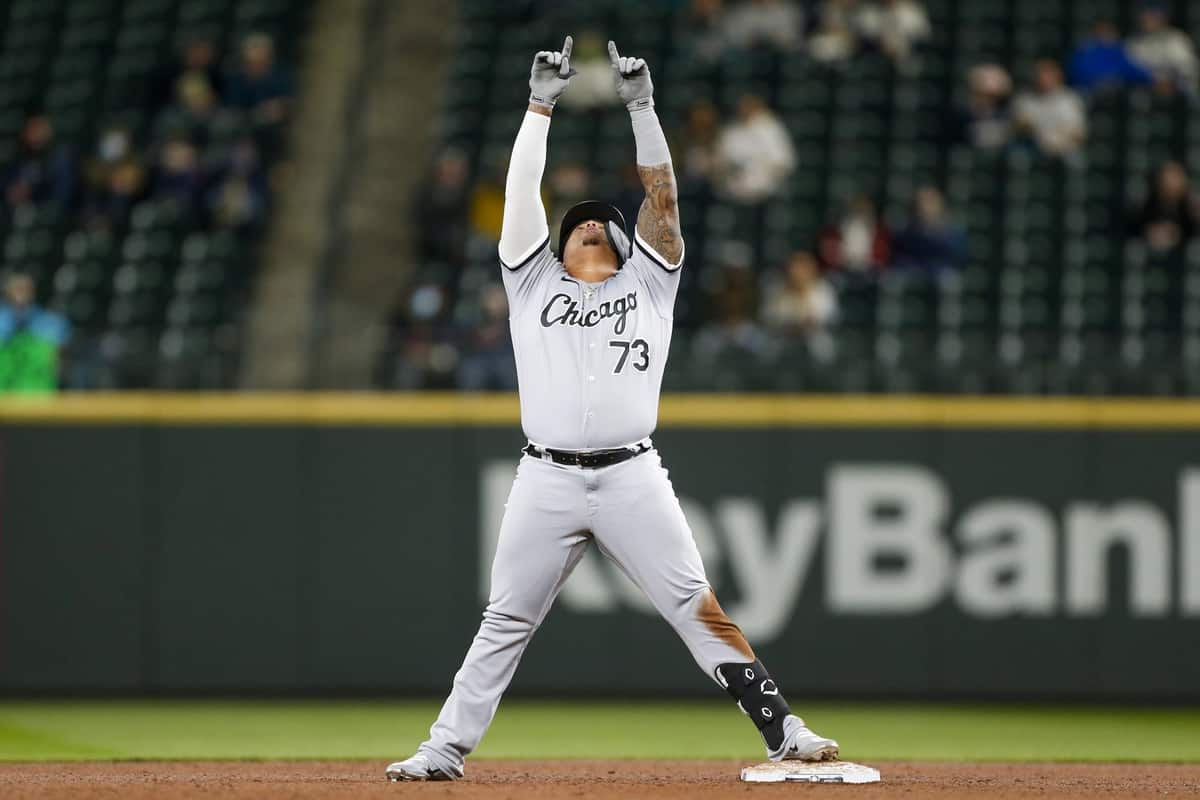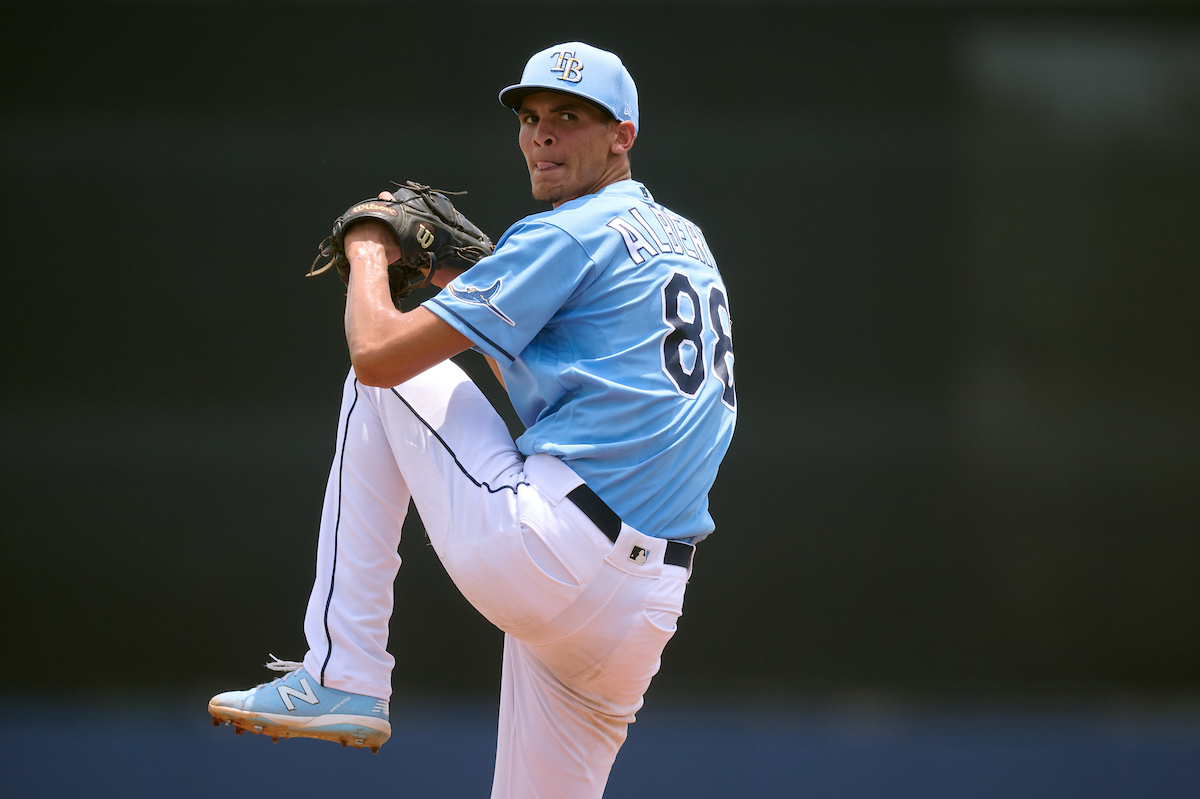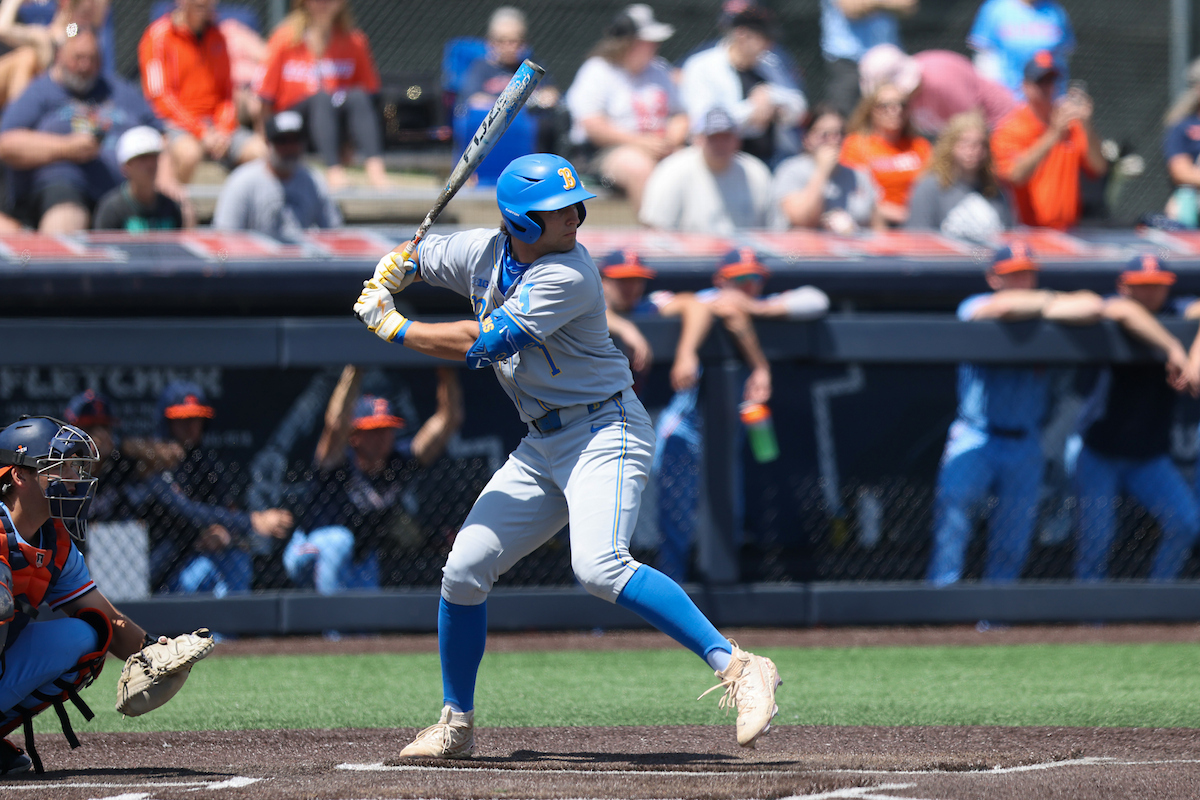After a bumpy adjustment period, Tony La Russa has more or less restored the calluses from jumping back in the saddle to manage the White Sox. A lead that needs more than two series to erase means fewer of his actions are under a microscope, and most people are inclined to give him at least some credit for the reason the Sox have so comfortable a cushion. Maybe he's not the reason the White Sox are so successful, but that's a superior position to arguing whether he's the reason the White Sox have disappointed. Even the most hardened skeptic can't say the White Sox would be doing better with somebody else in charge.
While it's been a while since La Russa made a mistake with legs, some of his earliest stumbles maxed out their stamina rating. One resurfaced on Wednesday in multiple forms. First it showed up in ESPN's shot at the midseason La Russa profile by Tim Keown.
There is a lot embedded in Anderson's "We know," most of it beginning on the night of May 17, when Yermin Mercedes hit a home run off Twins position player Willians Astudillo on a 3-0 pitch with the White Sox leading 15-4. It was hilarious on many levels: the game's two roundest icons aligning in blissful synergy to turn a 47 mph pitch and a mighty swing into a memorable moment. The homer put Mercedes' batting average at .364, adding to the Rule-5-draft, eight-years-in-the-minors, five-home-runs-in-April legend that had taken baseball by storm in the early weeks of the season.
La Russa, not surprisingly, saw it less enthusiastically. He criticized Mercedes, calling him "clueless" for swinging at a 3-0 pitch and allegedly ignoring a take sign. He vowed to exact some nebulous form of punishment. The next night, after Tyler Duffey of the Twins threw a pitch behind Mercedes, La Russa said, "I didn't have a problem with what the Twins did." Major League Baseball, however, did, hitting Duffey with a three-game suspension.
After Keown's recap of the episode with follow-up quotes from La Russa, Mercedes only pops up for a sentence:
Mercedes, who had already been cooling off after his record-breaking start, took a steep dive after the infamous 3-0 homer. From that day until his demotion on July 2, he hit an MLB-worst .162 with one homer in 123 plate appearances.
Later Wednesday, Mercedes hinted at stepping away from baseball on his Instagram account, and posted a follow-up message declaring "it's over" after Mercedes was lifted in the sixth inning.
Mercedes has a presence large enough to establish multiple reputations. Veteran Baseball Men vaguely criticized Mercedes for his lack of discipline, while those who saw Mercedes at his most productive saw a guy who just needed to be free to be himself.
Likewise, La Russa's enormous track record means accepting and rejecting Mercedes can be well within his character. Before the 3-0 swing on Astudillo, Mercedes showed up late to the ballpark multiple times. La Russa reportedly issued a reminder of the correct time on the first occasion, and declined to characterize a lineup change as a benching on the second instance.
But about 2½ weeks later, La Russa's multitudes meant he possessed the capacity to be very upset with Mercedes for breaking an unwritten rule about sportsmanship with his 3-0 homer off Astudillo. So much so that La Russa started upbraiding Mercedes as he rounded the bases. So much so that La Russa called him "clueless" before the next game and literally suggested Mercedes deserved a spanking. So much so that La Russa defended Minnesota's pitcher for throwing at Mercedes.
The passage of time failed to soften his stance.
"If the other side is getting beat, they're not happy," La Russa tells me a few weeks later. "Why would you give them a reason to retaliate against our player? If you feel you have enough runs, why bury teams and give them a chance to get upset? When I said what I said, I'm just protecting the family. This thing gets all confused with the unwritten rules. People have fun with that stuff. But are guys throwing up three-point plays up 30 points with two or three minutes left in a game? Do you respect your profession? Would you do something to demean it?"
La Russa could have jumped off the train at any point to rob this narrative of its potency. The ideal point for all interests involved probably would have been after Duffey's attempted retaliation, when La Russa could have framed his scolding of Mercedes as both an attempt to preserve (baseball norms) and protect (his players against physical harm). He instead condoned the assault, and that counterintuitive choice still resonates.
Those who watched the White Sox every day witnessed Mercedes struggling before the Astudillo homer. The league saw that Mercedes couldn't damage average-or-better velocity and adjusted by throwing fastballs for the first two strikes, after which Mercedes expanded the zone in an effort to protect against putaway breaking balls.
PERTINENT: Yermín Mercedes struggling to reach top speeds
Those who track the entire league and thus heard far more about Mercedes' rise than his fall were quicker to connect the struggles to La Russa.
The Mercedes episode has easily been La Russa's dumbest mistake because nobody on the White Sox gained from the experience. On a macro scale, La Russa failed to stand up for his own team. It also did La Russa no favors on a personal scale, because it obscured his role in facilitating Mercedes' rise. And while Mercedes' 3-0 swing was out of step with baseball protocol, La Russa's defense of Duffey was an equally noteworthy breach of traditional leadership that can be wielded against him when the opportunity arises.
Here's one such moment. Now the question is whether this actually matters, or whether it's just annoying to fans who have focused on other things. For all we know, it might've happened regardless of La Russa's insistence on decorum uber alles, just because Mercedes' personality and track record require a wider imagination. La Russa tried to offer encouraging words for Mercedes after Wednesday's game:
“Just kind of understand, you get to Triple-A and had a taste of the big leagues, you can get emotional, and I don’t know more than that,” La Russa said. “[I'm] probably going to reach out to him.
“As you probably know, if you are paying attention, several times he said how close we are. He knows I’m a supporter of his. So I’ll reach out to him and see what’s going on. It could be he’s just feeling frustrated. I’ll try to explain to him he’s got a big league future.”
La Russa's support of Mercedes would be a lot easier to see if he didn't show deference to Duffey for throwing at him. Alas, here we are.
La Russa isn't impervious to outside criticism. In fact, he can be randomly, bizarrely touchy about it. It just doesn't seem to get in the way of his day-to-day managing, at least in a way that prevented him from amassing the game's most impressive managerial record. The profiles in ESPN and The Athletic show players similarly managing him by identifying and separating the trivial from what's important. I suppose we'll see which basket Mercedes' announcement falls into after its validity is confirmed.
(Photo by Joe Nicholson-USA TODAY Sports)






